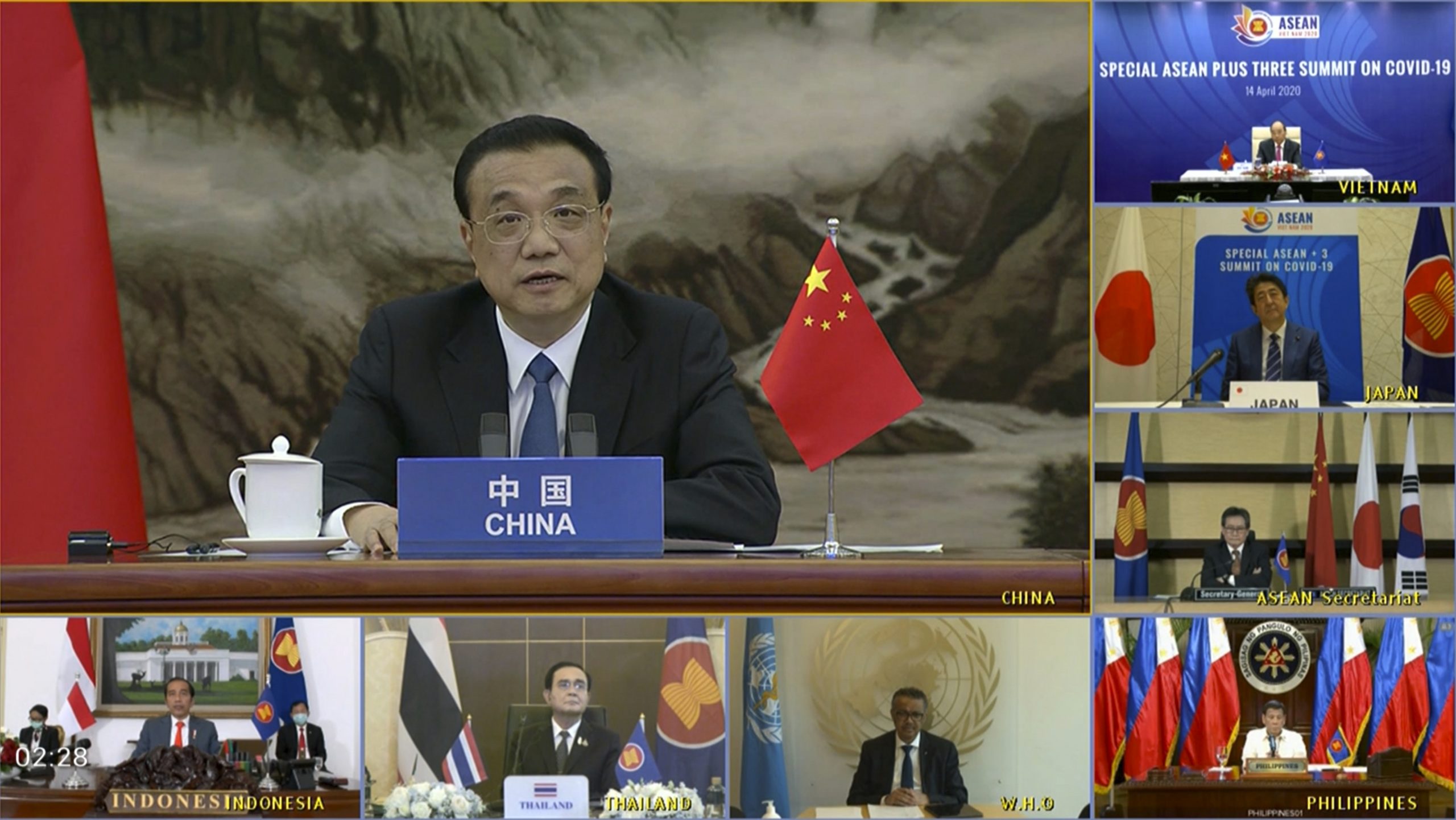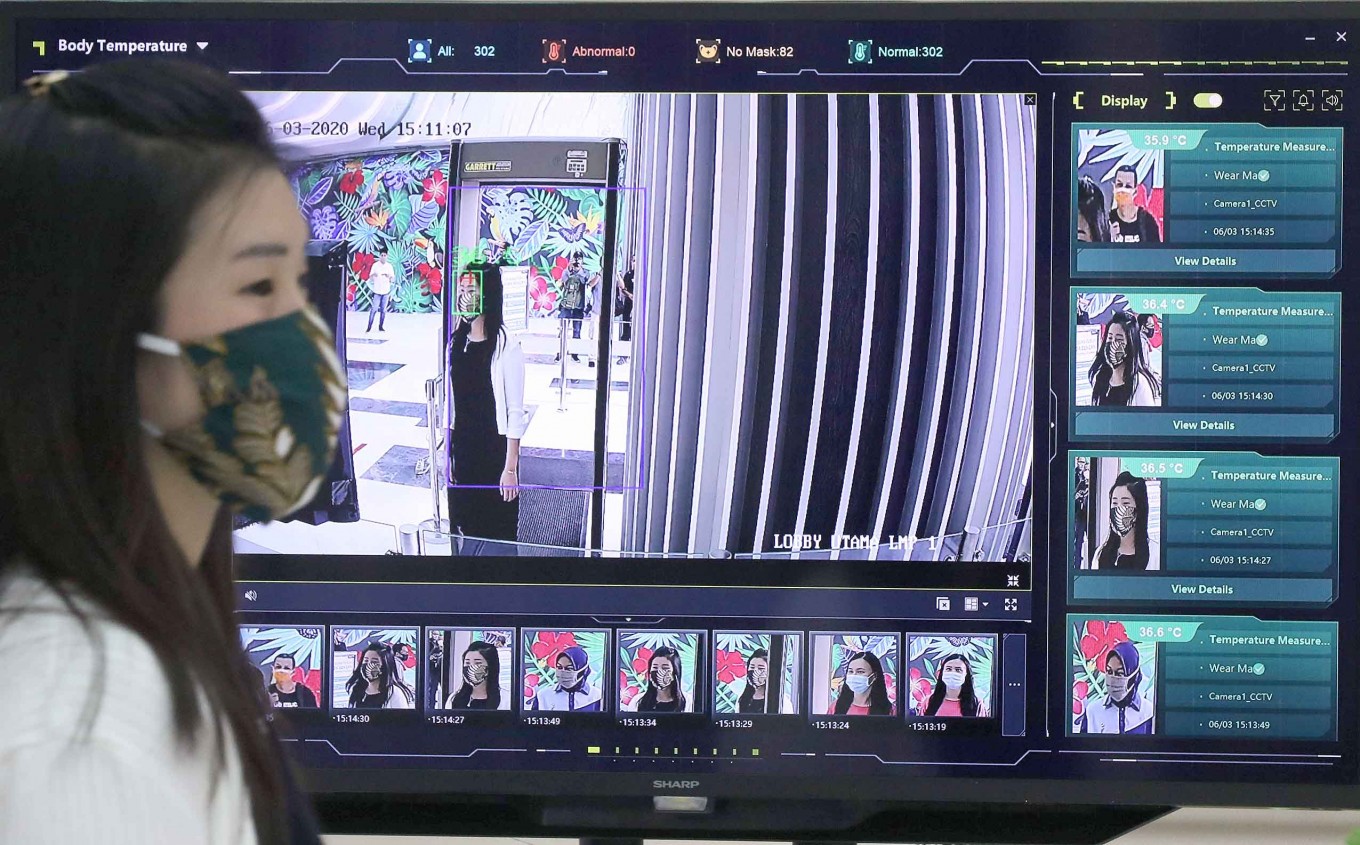President Trump’s Middle East Peace Plan revealed in January this year significantly favors Israel, with a ‘take it or leave it’ deal that leaves the Palestinians completely out of the discussion. It involved a United States-backed annexation plan of the West Bank that may take place as soon as July 1st. The plan also declared that Jerusalem will ‘remain Israel’s undivided capital.’ East Jerusalem, also claimed by Palestine to be the capital of their future state, has been occupied by Israel since the 1967 Middle East War.
Continue readingCooperation at the Core of ASEAN-China Response to COVID-19 Pandemic – ERIA
The Economic Research Institute for ASEAN and East Asia (ERIA) participated in the 1st Jakarta Forum on ASEAN-China Relations 2020 held online by the Foreign Policy Community of Indonesia (FPCI) on 29 May. The Forum aimed to promote the dynamic intellectual collaboration between relevant stakeholders in the ASEAN-China relationship. Hosted by the Mission of the People’s Republic of China to ASEAN and the Permanent Mission of the Philippines to ASEAN, the virtual forum covered the topic of ‘ASEAN-China Cooperation in dealing with the COVID-19 Pandemic.’
Continue readingAmbassadorial Lecture with H.E. Vincent Piket – Ambassador of the European Union to Indonesia and Brunei Darussalam – Part 1: Jakarta
In collaboration with the European Union Delegation to Indonesia and Brunei Darussalam, FPCI is conducting a series of Ambassadorial Lecture with H.E. Vincent Piket, Ambassador of the European Union to Indonesia and Brunei Darussalam.
Continue readingTransparency Key as Indonesia Relaxes Restrictions – Opinion by Camille Bismonte
The COVID-19 pandemic has not only drastically affected the way we live our lives, but it has thrust many countries into having to decide when to transition from sheltering to reopening –sometimes precipitating harmful partisan domestic battles.
By way of example, the United States and Brazil, although somewhat distinct, are both suffering greatly from COVID-19 and are considering reopening. Both are led by aggressive populists who rose to power as antielite and anti-establishment figures. Their leaders are prone to reject the opinions of scientists, promote conspiracy theories and undermine media that oppose them. Yet now they seek to avoid blame for any failure to ameliorate COVID-19 damage.
Continue readingAmbassadorial Lecture with H.E. Cameron MacKay – Ambassador of Canada to Indonesia – Part 1: Makassar
This FPCI Ambassadorial Lecture series with H.E. Cameron MacKay, Ambassador of Canada to Indonesia, aims to provide more understanding on the present and future relationship between Indonesia and Canada. The lecture series will specifically cover issues relating to the COVID-19 pandemic that is now infecting both Indonesia and Canada.
Continue readingWhy Democracy Matters? – Learning from the Experience of Indonesia and South Korea in the Time of COVID-19 – Opinion by Noto Suoneto
As we all know, the COVID-19 pandemic is not only affecting the global health and economic situation, but it has also tested the political leadership of all countries no matter what their political system is. Either they are Republic with Presidential System (Indonesia) and Parliamentary System (India), Absolute Monarchy (Saudi Arabia), Constitutional Monarchy (Japan, United Kingdom), or One-party State (China). Many even say, Democracy? Autocracy? coronavirus doesn’t care.
Continue readingThe Road to Paris Peace Forum 2020: Calling for Innovative Projects in Response to a COVID-19 World
The Road to Paris Peace Forum 2020: Calling for Innovative Projects in Response to a COVID-19 World
The Paris Peace Forum (PPF) was born in 2018 as a supporter of multilateralism and a catalyst for a global collective movement that seeks to provide solutions to the world’s most pressing challenges. The COVID-19 pandemic has only further reaffirmed PPF’s commitment to think forward, pave the way for the global community to best respond to the COVID-19, and most importantly, shape the landscape for multilateralism in a post-COVID-19 world. For the Paris Peace Forum third event in November 2020, the PPF Secretariat is looking for projects and initiatives from around the world that have been addressing the COVID-19 crisis. The PPF Secretariat is especially looking for those whose projects seek to improve our collective resilience and build a more robust and sustainable world. In this context, those who are addressing the following issues are strongly encouraged to apply: the governance of health; the use and regulation of digital tools and platforms to respond to the crisis; and the support of civil society and economic activity in times of pandemics.
Apart from COVID-19 related solutions, the PPF Secretariat is also considering other projects that tackle various issues in sustainable development, climate change and environment, education, and gender equality. Selected projects and initiatives will have the unique opportunities to receive project support mechanisms from the PPF Scale-Up Committee. Foreign Policy Community of Indonesia (FPCI) as one of the founding members of PPF is trusted to introduce the spirit of the Forum in Indonesia and the greater Southeast Asian region. We fully support PPF’s important agenda in developing the most innovative and workable solutions and enhancing cross-sectoral collaborations for the most pressing issues of our day. We are proud and excited to share such spirit here in Indonesia.
To watch the event, kindly access this following link: or watch it here in our website.
Virtual Public Discussion – Public Health and Pharmaceutical Views of the COVID-19 Pandemic
The global outbreak of the novel coronavirus has led to the deaths of hundreds and thousands of lives globally. Currently, stay-at-home practices are the best way of curbing the number of infections. Finding a vaccine is ultimately the number one weapon to fight this pandemic.
Continue readingVirtual Public Discussion – Keep Her in Your Prayers: Why the Involvement of Religious Leaders and Organizations Matter in Protecting and Empowering Women in Society during the COVID-19
The spread of the COVID-19 pandemic gives a new challenge to the global health system and a test to the United Nations member states commitments in protecting and empowering women in society. UN Women reveals that the economic impact of the COVID-19 is affecting women disproportionately and differently than men. The imposed social restrictions or even complete lockdowns in some countries have been affecting minority groups, informal workers and women-led small businesses in varying degrees, from having to balance between the new normal of taking care of their families while also working from home, to simply not having the luxuries to do so at all.
Continue readingKF – FPCI Virtual Dialogue – Democracy in the Time of COVID-19: Challenges and Future Opportunities
COVID-19 pandemic is not only a global health crisis, it has challenged the current state of our democracy. While both Indonesia and South Korea are countries that have been promoting democratic values in its socio-political system, this unprecedented COVID-19 has grown more concerned whether the pandemic has become the cover for the current political leadership’s authoritarian instinct and intent. Both governments have different containment policies and measures in combating COVID-19 and has also resulted in a dissimilar effect on the ground. This condition has sparked questions of whether democracy is the best form of government in handling the pandemic and how well kept are the values of democracy during the pandemic globally and particularly in both countries? What containment policies might be considered as authoritarian and has it significantly impacted citizens’ freedom of rights and expression?
Continue reading









